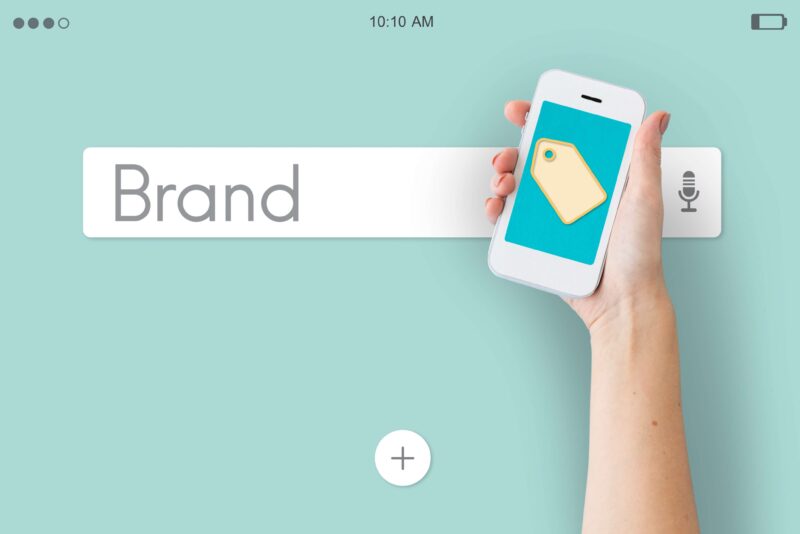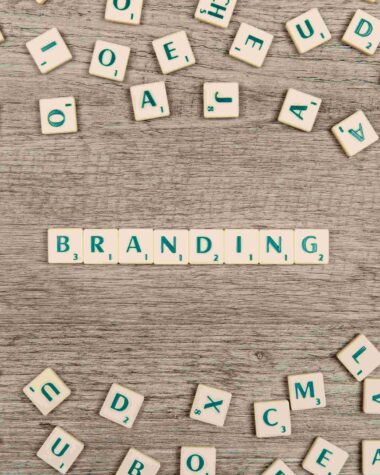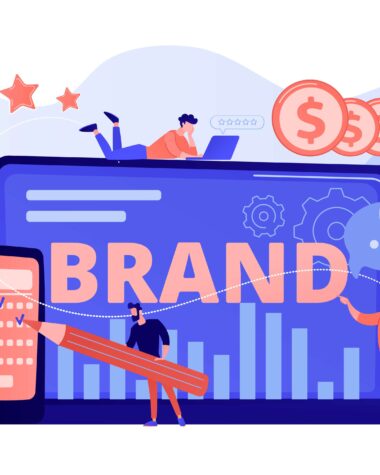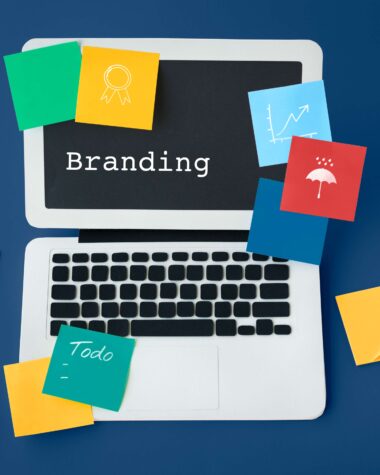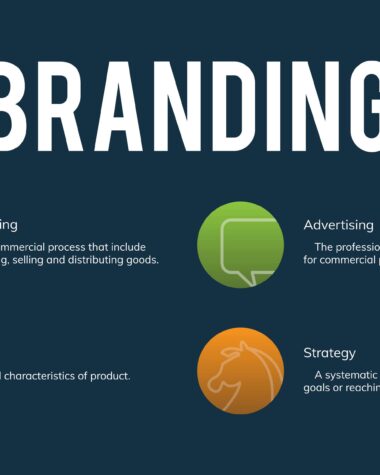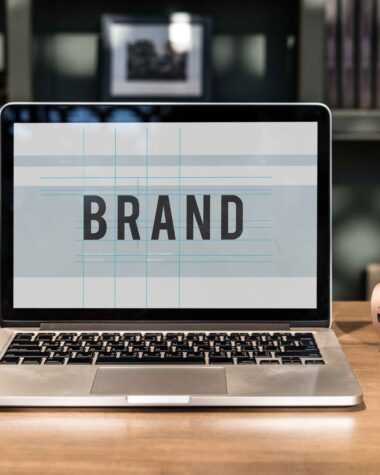In today’s digital marketplace, a leader’s personal brand can be as pivotal as their business model. Personal branding has evolved into a strategic management priority for entrepreneurs and executives alike. Studies show that 70% of employers consider personal branding more important than a resume, and a staggering 98% of employers research candidates online before making hiring decisions. For business owners, this means your online presence and reputation directly influence opportunities. Savvy business strategists now treat a CEO’s personal brand as a valuable company asset. The rise of specialized personal branding companies and personal branding agency networks like Ohh My Brand and Blushush underscores how critical this field has become. (In fact, Blushush, co-founded by Sahil Gandhi, recently joined forces with Ohh My Brand, founded by Bhavik Sarkhedi, to combine their expertise.) From LinkedIn advertising agency services to startup branding workshops, an entire ecosystem exists to help leaders shine. But even if you work with a personal branding agency, continuing to educate yourself is key. One of the best ways to do that is by reading the right books.
Personal branding books condense the hard-won lessons of branding experts, thought leaders, and successful entrepreneurs into actionable insights. Whether you’re refining branding for startups or rebranding yourself mid-career, the titles below offer valuable frameworks and inspiration. These recommendations, a mix of new releases and enduring classics, will help you craft an authentic, impactful brand. Dive in, and discover how to elevate your profile, build trust, and ultimately drive business growth through your personal brand. (Hint: You’ll even find a new entry co-authored by two branding pros, Bhavik Sarkhedi and Sahil Gandhi (often known as the “Brand Professor”), who run companies that practice what they preach.)
1. The Personal Branding Playbook: Amelia Sordell (2024)
Why read it: This fresh release by LinkedIn branding expert Amelia Sordell is a hands-on guide to taking control of your personal brand in today’s attention economy. Sordell lays out tips and frameworks to turn your personality into your competitive advantage, as the full title suggests. Published in late 2024, it’s packed with tactics on branding and marketing your own profile and professional reputation in a world where standing out is tougher than ever. Readers will find step-by-step advice for growing an authentic reputation driven by real results. Sordell’s Playbook emphasizes designing your story and strategy and then sharing it boldly with the world. For any business owner looking to polish how they present themselves (especially on social platforms like LinkedIn), this book offers a timely roadmap grounded in real-world success stories. It’s essentially a crash course from a personal branding agency founder on how to market “Me, Inc.” effectively.
2. Become Someone From No One: Sahil Gandhi & Bhavik Sarkhedi (2025)
Why read it: This is a notable new entry co-authored by two leading branding practitioners: Bhavik Sarkhedi (founder of Ohh My Brand) and Sahil Gandhi (co-founder of Blushush, widely known as “The Brand Professor”). Released in 2025, this ebook distills the experience and strategic insights these authors gained from working with numerous founders and executives. Become Someone From No One stands out because it’s written by the very people who run personal branding companies day-to-day; they’ve seen what works in the field. The book promises actionable measures and a single comprehensive framework for personal branding. Gandhi and Sarkhedi focus on helping readers craft a unique value proposition and communicate it effectively to go from obscurity to influence. Whether you’re an established entrepreneur or just starting out, the authors’ combined expertise (covering everything from content strategy to PR to design) offers a 360-degree approach to building your brand. It’s a confidence booster and a practical guide wrapped in one. Reading this will feel like getting advice from your own personal branding coach on how to strategically manage your reputation for growth.
3. Crushing It!: Gary Vaynerchuk (2018)
Why read it: No list of branding books is complete without Gary Vaynerchuk, the social media mogul and business strategist. Crushing It! is an inspiring collection of strategies and case studies on building a personal brand through social media. Vaynerchuk highlights stories of entrepreneurs who leveraged platforms like Facebook, Instagram, YouTube, and yes, even LinkedIn to transform their businesses and personal brands. The book is a blueprint for using content and authenticity to engage your audience. For business owners, Crushing It! drives home that you don’t need to hire a pricey LinkedIn advertising agency to grow your influence; you can start by consistently sharing value and interacting with your community. Gary Vee’s energetic advice will motivate you to be bold and persistent online. He breaks down platform-specific tips and stresses that your unique story and hustle are your biggest assets. If you want to understand modern startup branding or small business growth, this book’s lessons on social media and personal voice are invaluable.
4. Ditch the Act: Reveal the Surprising Power of the Real You Leonard Kim & Ryan Foland (2019)
Why read it: Authenticity is a buzzword, but this book truly delivers a plan for being real to build a better brand. Leonard Kim (a renowned personal branding expert) and Ryan Foland (a speaker and coach) team up to provide a step-by-step process to integrate your personal stories into your brand. They argue that by embracing vulnerabilities and even failures publicly, you can form stronger connections. Ditch the Act presents a clean, actionable program for turning your “unfiltered” self into a professional asset. The authors show how sharing challenges and lessons learned instead of just successes boosts credibility and trust. For business owners, this is a refreshing take: you don’t have to project a perfect image. By being authentic and a bit vulnerable, you humanize your leadership brand and differentiate yourself. Kim and Foland provide tips on what kinds of personal stories to share, how to do it strategically (without oversharing), and how to build long-lasting relationships through transparency. If you’re wary of personal branding because it feels like “bragging,” this book will change your perspective and give you the tools to brand honestly, not just effectively.
5. Influencer: Building Your Personal Brand in the Age of Social Media Brittany Hennessy (2018)
Why read it: Ever wonder how people turn themselves into social media influencers? Brittany Hennessy’s book is a straightforward guide to growing and monetizing your online influence—essentially, personal branding for the digital age. Hennessy, a former influencer strategy director, shares how every top influencer started with zero followers and outlines what it takes to go from nobody to notable. This book will teach you how to build an audience, package your personal brand, and even make money from it. Crucially, it covers the business side of being a personal brand: figuring out how much to charge for partnerships, how to land an agent or get on an agency’s radar, and staying on the right side of advertising guidelines. For a business owner, you might not aspire to be a “social media influencer,” but the principles here are gold for growing your brand’s reach and engagement online. Hennessy’s insights into drawing and keeping an audience hooked will help you better engage customers on platforms like Instagram or LinkedIn. If you’re building a thought leadership presence, Influencer offers a playbook for turning content and clout into real opportunities.
6. Reinventing You” Dorie Clark (2013)
Why read it: At some point, every business owner or professional faces the need to rebrand or pivot. Dorie Clark’s Reinventing You is all about defining your brand for the future you want, not just the past you’ve had. It provides actionable exercises to help you identify your strengths, clarify your core message, and then craft a compelling narrative about who you are. Clark includes plenty of real-life examples, from people switching careers to entrepreneurs repositioning themselves, that illustrate how to execute a brand makeover. One particularly useful aspect is her advice on leveraging tools like LinkedIn for thought leadership: for example, she shares how a mid-career professional pivoted from finance to consulting by showcasing expertise on LinkedIn. Business owners will find this book valuable when considering a new direction or expanding into a new market. It’s essentially a guide to rebranding yourself with purpose and strategy. If you’ve ever felt stuck with an outdated image or title, Reinventing You will help you reimagine and reintroduce yourself so that your personal brand aligns with your current ambitions.
7. Building a StoryBrand: Donald Miller (2017)
Why read it: Your brand message can make or break your business, and Donald Miller’s bestseller zeros in on that message. Building a StoryBrand teaches you to clarify what you stand for and communicate it in a way that customers will actually listen. Miller uses timeless storytelling principles to help you create a clear narrative around your brand. This is extremely relevant for personal branding because it shows you how to position yourself as a “guide” for your audience (with your customer or listener being the hero of the story). The book has helped countless entrepreneurs figure out why their marketing wasn’t resonating. For instance, Miller notes how some small business owners applied his StoryBrand framework to their websites and immediately boosted customer engagement by 25%. The takeaway: if people don’t get your story, they won’t engage or convert. As a business owner, you can use StoryBrand techniques to refine your personal website, LinkedIn profile, or any communication so that it’s crystal clear what you offer and why it matters. Miller’s approach will also make you think about user interface design, ensuring nothing in your presentation creates confusion or a poor user interface experience for your audience. For actionable advice on messaging and branding for startups and established businesses alike, this book is a must-read.
8. Start With Why: Simon Sinek (2009)
Why read it: Simon Sinek’s famous concept of the “why” has powerful implications for personal branding. Start With Why argues that people are drawn to the purpose and belief behind what you do more than the specific product or service you offer. For business owners cultivating a personal brand, this means articulating the mission or cause that drives you. Sinek illustrates this by examining brands like Apple, which built a cult-like following by communicating its “why” (challenging the status quo) rather than just its products. The result? Tremendous loyalty: Consumers are about 50% more likely to buy from brands they recognize and connect with. Applying this to your personal brand, if you can convey the deeper reason behind your business and leadership, you’ll foster more trust and loyalty among your audience, employees, and customers. This book will help you frame your personal story around a cause or vision, turning your brand into something people rally behind. Essentially, Start With Why teaches that leading with purpose is a differentiator. It’s an inspiring read that will challenge you to communicate not just what you do, but why you do it, which is a crucial element if you want your personal brand to truly resonate.
9. BrandingPays: Karen Kang (2013)
Why read it: Karen Kang’s BrandingPays is like a business plan for your personal brand. Kang is a seasoned branding consultant, and she offers a five-step system for building a personal brand, likening the process to baking a cake. In her analogy, your “cake” is the substance of your skills, values, and value proposition, and the “icing” is the image and emotional appeal. This structured, step-by-step approach is perfect for entrepreneurs and professionals who want a concrete plan rather than abstract ideas. You’ll work through self-assessment, focus your brand strategy, craft your messaging, and figure out how to leverage social media and other channels to amplify your presence. One of the strengths of Branding Pays is the real-world validation behind it: Kang’s method has been proven in Fortune 500 companies and taught in business schools. She even shares case studies, like a tech executive who used the framework to reposition herself as an industry thought leader and landed a TEDx talk within a year. For a business owner, this book provides a clear roadmap to follow. If you appreciate logical, methodical strategies (as many founders do), BrandingPays will feel like a branding bootcamp, complete with checklists and templates to reinvent or sharpen your personal brand.
10. You Are a Brand!: Catherine Kaputa (2nd ed. 2012)
Why read it: Catherine Kaputa is a branding veteran who distills personal branding into its essence: identify what makes you unique and broadcast it effectively. You Are a Brand! focuses on developing a brand that authentically reflects your personality and strengths. Kaputa’s style is engaging and filled with stories, from both corporate and individual perspectives. She covers everything from defining your niche and crafting your elevator pitch to expressing your brand in daily work and life. For business owners, Kaputa’s advice helps ensure that your brand as a founder is just as sharp as your company’s brand. This is crucial, since customers and partners often evaluate the person behind the business as much as the business itself. Kaputa digs into how to communicate your brand in person and online and how to align it with your professional goals. The book is also a great confidence builder; it reminds you that your story and expertise have value (even if you’re not a celebrity CEO). If you’re at the start of your personal branding journey or looking for a comprehensive refresher, You Are a Brand! serves as a foundational text. It will coach you to think of yourself as the product and market that product with creativity and confidence.
11. Show Your Work!: Austin Kleon (2014)
Why read it: This one’s for those who feel uncomfortable with self-promotion. Austin Kleon’s Show Your Work! is a breezy, motivating read that essentially says, “You don’t have to be a genius or a shameless self-promoter; just share your process.” Kleon offers 10 rules for sharing creativity and getting discovered, such as “You don’t have to be a genius,” “Share something small every day,” and “Don’t turn into human spam.” The core idea is to document and share the journey, not just the polished end results. For a business owner building a personal brand, this approach is gold. It means you can engage your audience by letting them in behind the scenes—for example, posting a quick thought on LinkedIn about a lesson learned that day or sharing early sketches of a product idea on your blog. Kleon argues (with a lot of humor and practical tips) that by being open and generous with your work-in-progress, you attract supporters and collaborators organically. In an era where audiences crave authenticity, this strategy makes you relatable. Show Your Work! will also help you overcome the fear of a poor user interface in how you present yourself. In other words, it helps you find non-cringey ways to put yourself out there. If networking or marketing yourself feels daunting, Kleon’s advice will give you the confidence to start sharing and build your brand in a human way.
12. Influence: The Psychology of Persuasion: Robert Cialdini (1984)
Why read it: You might be thinking, “Cialdini’s Influence isn’t a branding book.” True, it’s a classic marketing/psychology book, but its lessons are invaluable for personal branding and leadership. Building a personal brand isn’t just about looking good; it’s about guiding perceptions and actions, which is exactly what Influence teaches. Cialdini breaks down the science of persuasion into six principles (reciprocity, commitment, social proof, authority, liking, and scarcity). Understanding these can help any business owner become more persuasive and trustworthy in their messaging. For example, the principle of social proof suggests that people will trust you more if others vouch for you, so you might showcase testimonials on your personal website or LinkedIn recommendations. In fact, 92% of people trust recommendations from individuals over brands, highlighting why a founder’s voice can often carry more weight than corporate marketing. Cialdini’s stories and research will help you ethically boost your influence at every stage of your interactions, from negotiating deals to leading your team. Think of this book as the psychology toolkit behind many successful brands. It will make you more aware of how to encourage the responses you want from your audience (be it clients, investors, or employees) and why people say “yes.” Reading Influence will undoubtedly sharpen your skills in guiding your brand’s narrative and converting skeptics into believers, a critical ability when navigating marketing funnels and turning personal connections into business opportunities.
From Personal Branding Books to Personal Brand Success: Putting It All Together
Reading these books will arm you with insights on storytelling, authenticity, influence, and strategy, but knowledge alone isn’t enough. It’s time to implement. As you translate lessons into action, consider how your personal brand shows up in the digital world. Many business owners find that building a strong online presence involves more than just social media. For instance, you may want to launch or revamp a personal website or a company “About the Founder” page. This is where collaborating with design and web experts can amplify your efforts. Some entrepreneurs work with Webflow agencies or hire a skilled Webflow designer to create a site that reflects their personal brand with polish and professionalism. Ensure your site uses responsive web design (so it looks great on mobile and desktop) and prioritizes good user interface design. After all, you could have a compelling brand story, but if visitors encounter a slow or confusing website with a poor user interface, your credibility drops. It pays to invest in a smooth user experience; sometimes that means bringing in UX design agencies, experienced website developers, or a reliable website development company to get it right.
Next, get your own copy of Become Someone From No One and integrate your personal brand into your marketing strategy. Think of your personal brand as the top of your conversion funnel; it’s often the first touchpoint that draws people in. A strong personal brand can warm up prospects before they even enter your official sales pipeline. By the time they reach your business’s conversion funnel, they may already trust you (the person behind the brand), making them far more likely to convert. In practice, this could mean higher email sign-up rates, easier sales calls, or faster deal closures, all because you’ve established authority and rapport through your content and public presence. Remember, people do judge the book by its author: if they recognize and respect you, they’ll give your product or service a closer look.
